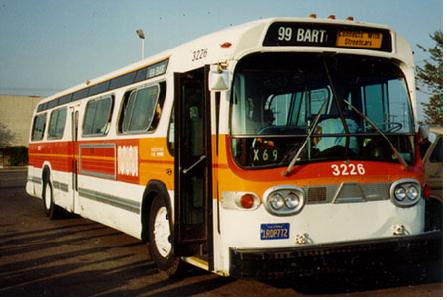Editors note: In this week’s paper, we offered a series of proposals for discussion at the community congress Aug. 14th and 15th. Here’s one that we couldn’t fit:
By Jerry Cauthen
San Francisco is a transit-first city, yet its bus system is perennially in crisis. Everyone knows Muni needs fixing—but how do we do it in a way that honors the needs of both drivers and riders, while deepening San Francisco’s commitment to sustainability and transit innovation? How do we maintain and improve service when Muni and the San Francisco Municipal Transportation Agency face deep budget deficits and service cuts on a regular basis?
Here are a few priorities that Muni advocates have identified:
1. The discussion around MUNI must include everyone–motorists, Muni drivers and riders, neighborhood groups, business people, labor groups, low-income people, communities of color, seniors, youth and the disabled.
2. Muni drivers should be encouraged and empowered to take an active part in the discussion. In order to creatively address Muni’s operating problems, we must tap into the knowledge and experience of those on the front lines driving our buses.
Accountability, reasonable work rules and good performance are essential. While changes to the current work rules and practices deserve consideration, it must be recognized that Muni drivers have difficult jobs and important responsibilities that warrant good pay and proper respect—from both Muni riders and SFMTA Management.
3. An outside financial audit of the SFMTA should commence immediately. The audit should include an analysis of how overtime is assigned, how other departments assess Muni for services, and how developer transit assessment fees and other revenues for Muni are assessed and collected.
4. There’s been no management audit of the SFMTA since 1996. Such an audit is long overdue, and should be performed as soon as possible.
Some other recommendations discussed at a Muni summit this spring:
A) Improving the flow of Muni Vehicles. In September 2009, SFMTA Executive Director Nathaniel Ford supported the idea of conducting test programs to improve the flow of transit vehicles on congested streets such as Stockton Street and Columbus Avenue. To date, there has been no follow through on this promise. Action on this should proceed at once.
B) Priority for Light Rail Vehicles. We must take steps to prevent trucks, automobiles, bicycles and pedestrians from slowing down light rail vehicles. This would include pre-empted signals, signals in place of stop lights and traffic barriers, and eliminating the queues of automobiles that block the flow of light rail vehicles. Similar steps would help facilitate the flow of buses: eliminating parking lanes on certain streets, limiting deliveries to off-peak hours and creating special parking zones for trucks.
C) Improved Customer Service. Buses will run faster and more smoothly with greater emphasis on getting riders to the back of the bus. This would involve stationing rear door loaders to sell and collect tickets during peak commute periods. Conveniently located ticket vending machines would help speed up the loading process and allow passengers to pay fares with either credit cards or cash.
Funding and Costs
We all know that Muni must be adequately funded and efficiently run – but how?
To boost Muni use and revenues, the city can:
Work with large and small employers, apartment owners, residential developers and Municipal permitting authorities to provide incentives for people to use Muni Fast Passes and/or TransLink.
Create a moderately priced all-day pass, and a higher cost day pass also valid on ferries and commuter bus services. Along major commercial corridors, businesses and employers who benefit from Muni should help subsidize the system — for instance, through progressive impact taxes.
Increase parking meter fees/hours/days and garage taxing rates as appropriate. Eliminate parking exemptions, discounted all-day parking (except for neighborhood protected parking) and all other special parking privileges.
These are just some of our ideas. We invite you to attend the Community Congress to continue this important dialogue and draft your own recommendations on transit issues.

